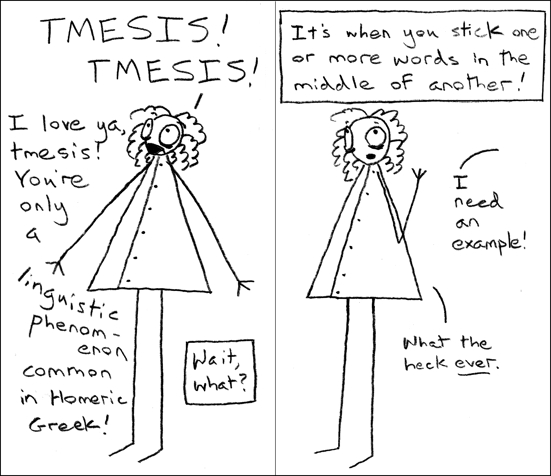Tmesis
You know what tmesis often involves in English? Expletive infixation! Which is to say, while in some other languages tmesis can be every bit as serious as merism or hendiadys, say, in English we mostly use it for cussing. My favorite example of tmesis, though, is family-friendly: a whole nother. It sounds perfectly natural, doesn’t it? Every little thing probably also counts, though I won’t commit to it because I’m not a linguist, I just like words about words. About hendiadys, incidentally, James Thurber says this: “The indefinite ‘one’ is another source of trouble and is frequently the cause of disagreeable scenes. Such a sentence as ‘One loves one’s friends’ is considered by some persons to be stilted and over-formalized, and such persons insist that ‘One loves his friends’ is permissible. It is not permissible, however, because ‘one’ is indefinite and ‘his’ is definite and the combination is rhetorically impossible. This is known as hendiadys and was a common thing in Latin. Rare examples of it still exist and are extremely valuable as antiques, although it is usually unsafe to sit or lie down on one.”


Discussion ¬